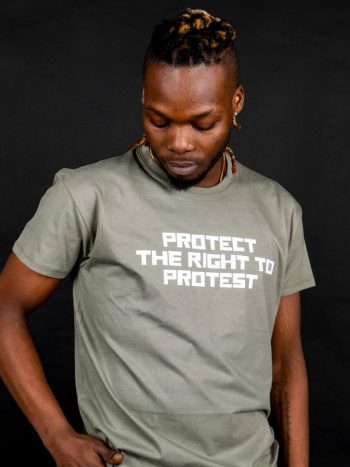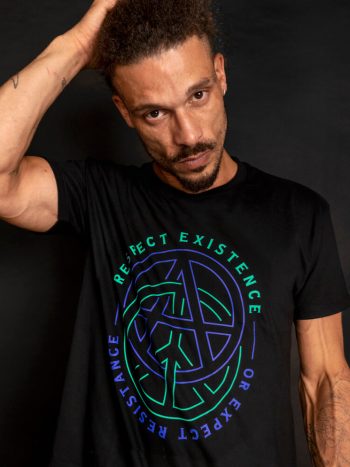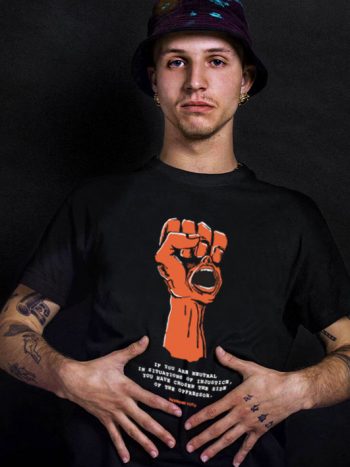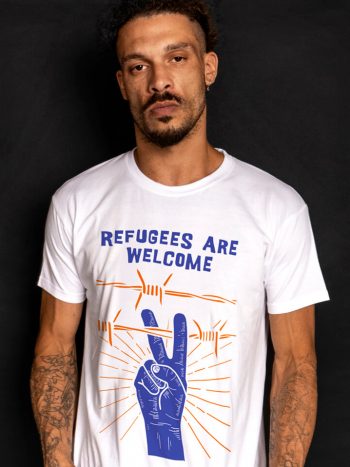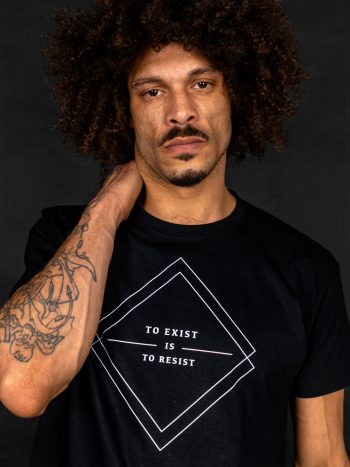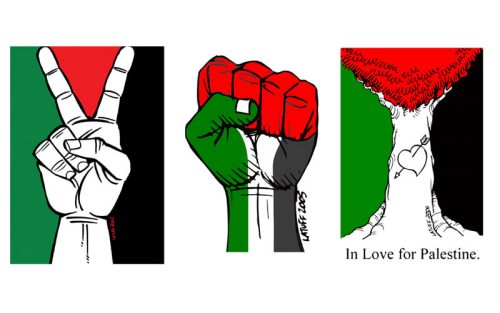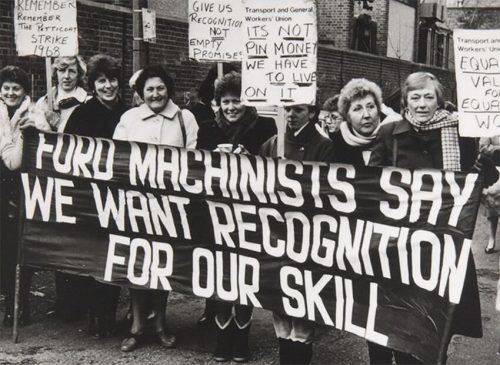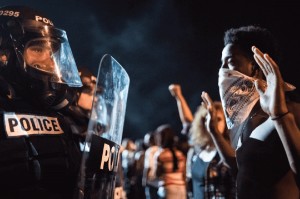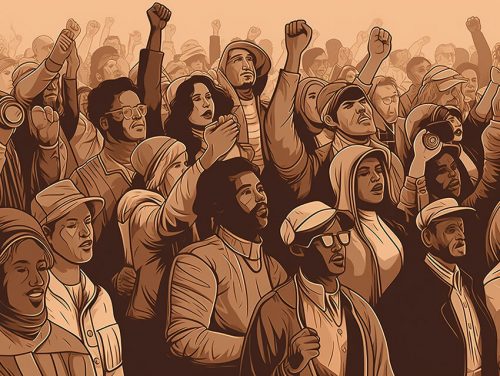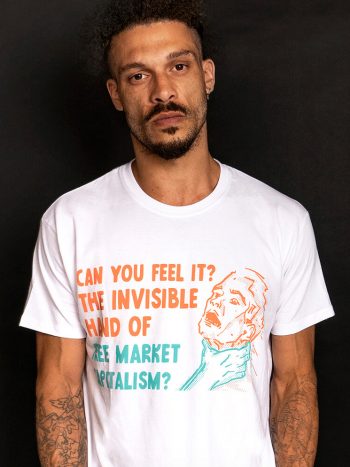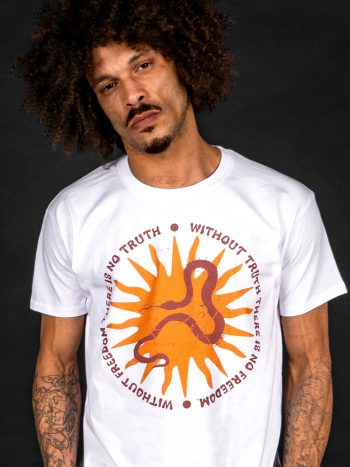Throughout history, there have been moments when people from all walks of life have risen up, united by a common cause, to demand change and challenge the status quo. These protests, often fueled by passion and a desire for justice, have left an indelible mark on society and altered the course of history. From civil rights movements to struggles against oppressive regimes, these ten protests stand out as some of the biggest and most important in human history.
Each of these demonstrations represents a pivotal moment when ordinary individuals dared to challenge the prevailing norms and systems, and in doing so, reshaped the world we live in today. The protests on this list have transcended borders, ideologies, and generations, capturing the attention of the global community and igniting a spark of hope and inspiration for others to join their cause.
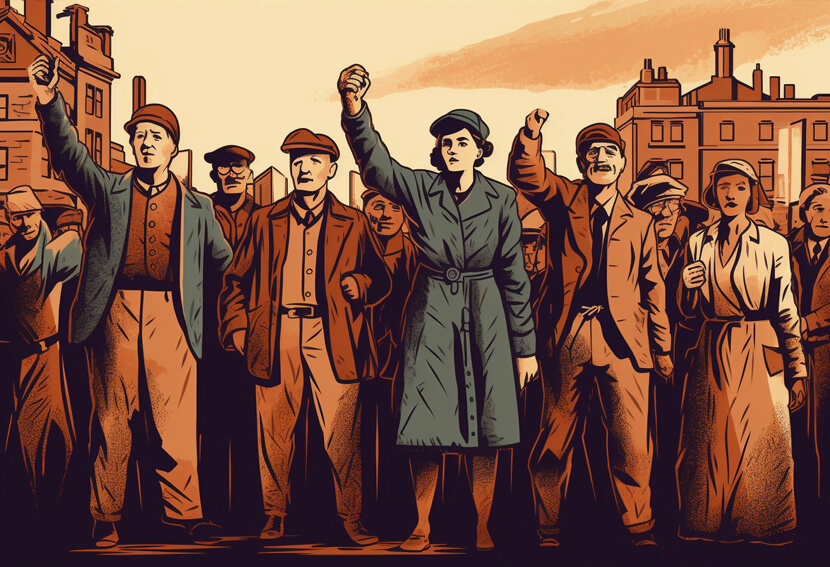
From the Civil Rights March on Washington and the Stonewall Riots to the Arab Spring and the Climate Strikes, these protests have tackled issues ranging from racial equality and LGBTQ+ rights to democracy and environmental sustainability. They have pushed the boundaries of what was deemed possible, inspiring millions to stand up against injustice and demand a better future.
Each protest on this list carries a unique story of resilience, courage, and sacrifice. They are a testament to the power of collective action and the unwavering determination of individuals who refuse to accept the status quo. Through their actions, these protesters have forced society to confront uncomfortable truths, challenge deeply entrenched systems, and strive for a more just and equitable world.
As we delve into the stories of these ten monumental protests, let us reflect on their profound impact, appreciate the progress they have brought about, and recognise the ongoing work that still lies ahead. These protests serve as a reminder that change is possible, that the voice of the people can shape history, and that our collective actions have the power to bring about a brighter future for generations to come.
Civil Rights March on Washington (1963)
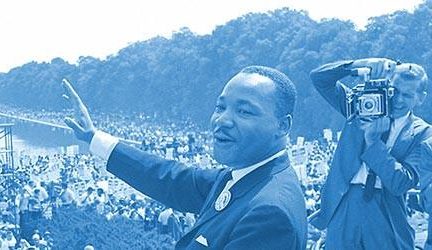
The largest civil rights demonstration in U.S. history, where Martin Luther King Jr. delivered his iconic “I Have a Dream” speech, highlighting the struggle for racial equality.
The march played a pivotal role in the passage of the Civil Rights Act of 1964 and the Voting Rights Act of 1965, which dismantled legal segregation and protected voting rights for African Americans, marking a significant turning point in the struggle for racial equality in the United States.
Stonewall Riots (1969)
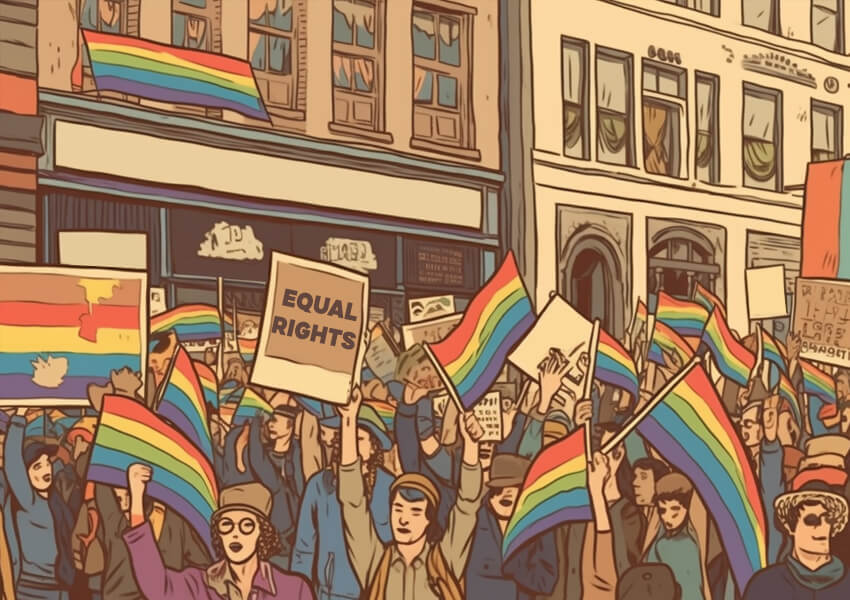
A series of spontaneous protests by the LGBTQ+ community in response to a police raid at the Stonewall Inn in New York City. It marked a turning point in the LGBTQ+ rights movement and is considered the birth of the modern gay rights movement.
The uprising sparked the modern LGBTQ+ rights movement, leading to increased visibility, acceptance, and legal protections for the community. It inspired the formation of numerous LGBTQ+ organisations and laid the foundation for advancements in LGBTQ+ rights worldwide.
Anti-Apartheid Protests (1980s)
A global movement against the oppressive apartheid regime in South Africa. Protests, including divestment campaigns and boycotts, put pressure on the government, ultimately leading to the dismantling of apartheid.
The global anti-apartheid movement exerted substantial pressure on the South African government and its international allies. Through divestment campaigns, boycotts, and international sanctions, it contributed to the dismantling of apartheid and paved the way for democratic elections and the eventual end of racial segregation in South Africa.
Tiananmen Square protests (1989)
A pro-democracy movement in Beijing, China, demanding political reforms and freedom of speech. The Chinese government’s brutal crackdown resulted in a tragic loss of life but also brought international attention to the struggle for democracy.
Despite the efforts to suppress the movement, the protests brought attention to the struggle for democracy and human rights in China. The event continues to inspire and influence dissident movements, raising awareness of the need for political reforms and freedom of expression.
Fall of the Berlin Wall (1989)
While not a traditional protest, the peaceful demonstrations and civil resistance in East Germany played a crucial role in the fall of the Berlin Wall and the reunification of Germany, symbolizing the end of the Cold War.
The peaceful demonstrations and civil resistance in East Germany marked the reunification of Germany and symbolised the end of the Cold War, representing a significant shift in geopolitical dynamics and promoting the values of freedom and unity.
Arab Spring (2010-2012)
A wave of pro-democracy protests that swept across the Middle East and North Africa, starting in Tunisia. The movement led to the overthrow of long-standing authoritarian regimes in several countries, bringing significant political change to the region.
The wave of protests led to the overthrow of autocratic leaders in several countries, such as Tunisia, Egypt, and Libya, and brought about political changes and demands for democratic reforms across the Middle East and North Africa. While the outcomes varied, the Arab Spring created an atmosphere of political awakening and spurred ongoing calls for social justice and political accountability.
Occupy Wall Street (2011)
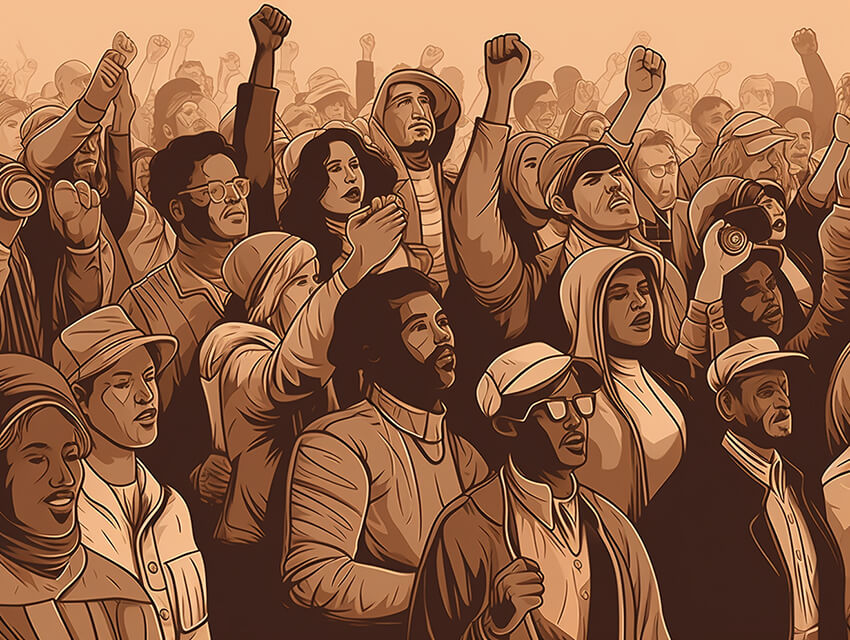
A protest movement against economic inequality and corporate influence in the United States. It sparked similar demonstrations globally and brought attention to issues of wealth disparity and the concentration of power in the hands of the few.
The movement drew attention to economic inequality and corporate influence on democracy. Although it lacked specific policy achievements, Occupy Wall Street succeeded in framing the discourse around income disparity, emphasizing the need for financial reform and highlighting the power imbalances within society.
Women's March (2017)
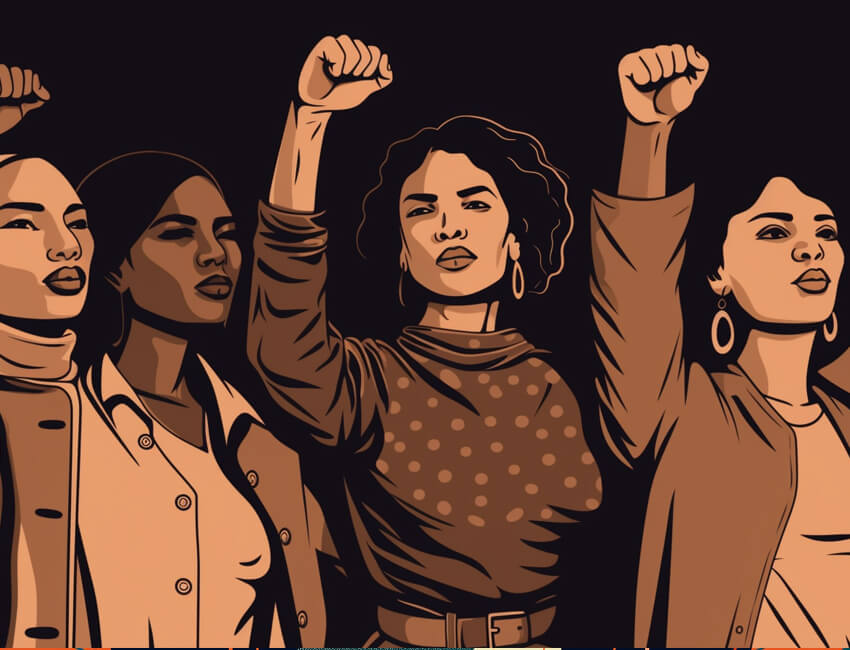
A global protest held in numerous cities following the inauguration of U.S. President Donald Trump. Millions of people participated, advocating for women’s rights, reproductive rights, and social justice.
The global Women’s March united millions of people in solidarity for women’s rights, reproductive freedom, and social justice. It served as a powerful demonstration of resistance and led to increased awareness and activism surrounding gender equality issues, amplifying the voices of women worldwide.
Black Lives Matter (2013-present)
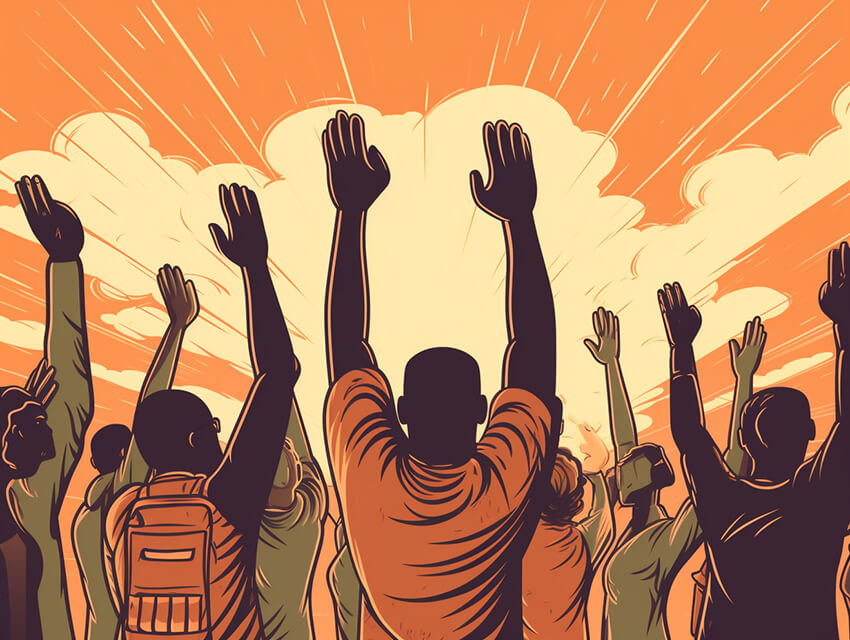
A movement against police violence and systemic racism, sparked by the acquittal of Trayvon Martin’s killer. It gained significant momentum following the killings of George Floyd, as well as Michael Brown, Eric Garner, and other African Americans. The movement has shaped public discourse and brought attention to issues of racial injustice.
The movement has raised awareness about systemic racism, police violence, and racial injustice. It has sparked nationwide conversations and policy changes, such as police reforms, increased accountability, and a renewed focus on addressing racial disparities in various aspects of society. The fight for racial equality is by no means over, and we still have a long way to go.
Climate Strikes (2019-present)
Led by youth activists like Greta Thunberg, the global climate strikes have drawn attention to the urgent need for action on climate change. Millions of people have taken to the streets worldwide, demanding governments and corporations address the environmental crisis.
The youth-led climate strikes have elevated the urgency of addressing climate change. They have influenced public opinion, increased political pressure, and led to commitments and actions by governments, organisations, and individuals to combat the climate crisis, promoting environmental sustainability and driving the push for renewable energy and carbon neutrality.
These protests are just a glimpse of the many influential demonstrations that have shaped history, highlighting the power of collective action in promoting social, political, and cultural change.


